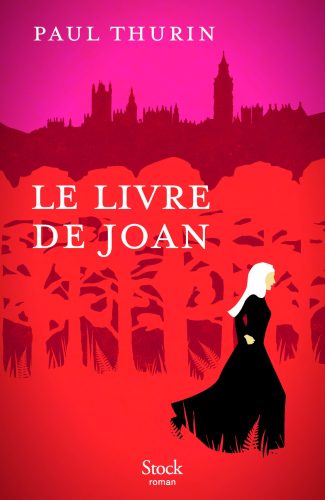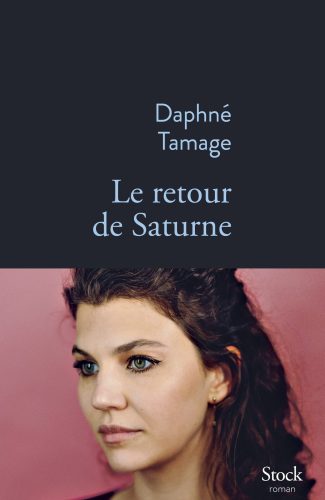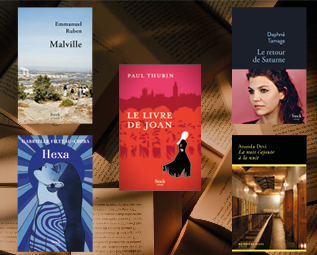
Contact us
Head of Rights
For German, Dutch, Greek, Middle Eastern, North African, Scandinavian, Turkish, UK and US inquiries
Foreign Rights Manager
For Asian, Brazilian, Eastern Europe, Italian, Portuguese, Russian, South American and Spanish inquiries
Dear friends,
We are delighted to unveil our 2024 Fall Fiction Rights List.
We will be attending the Frankfurt Book Fair in October. Do send us an e-mail should you wish to book an appointment!
You can also drop by our stand: E42 in Hall 5.
Don’t forget to take a look at our 2024 Fall Non-Fiction Rights List.
We are very much looking forward to hearing from you!
The Rights Team
Highlights
Joan of Leeds
Paul Thurin
Novel - January 2025 - 368 pages
A nun fakes her own death to escape from a convent and discover the world.
England, 1318. Joan of Leeds makes the mad resolution to run away from the Benedictine abbey where she has been kept cloistered since she was 10. To succeed, she will have to elude the observation of the Abbess, a merciless woman enforcing adherence to the strictest traditions.
By the light of a candle, Joan unveils her plan: given that only death can absolve a nun of her oath, she will devise a daring ploy to escape from the abbey by fooling her superiors, with the help of a few sisters.
Thus begins Joan’s astonishing quest for freedom, which will take her on an eventful journey across the country, and then to London, where she will come into immediate contact with the highest spheres of power. Unique individuals and animated discussions will reveal to her what the Scriptures had hidden: pleasure, knowledge and freedom.
But when the Abbess discovers the truth and sends the old Constable Duns in pursuit, Joan must increase her vigilance to preserve what she has gained and avoid being locked away again.
From a true story, Paul Thurin crafts a flamboyant portrait of a woman. He recounts the extraordinary destiny of someone who defied all the taboos in order to live freely.
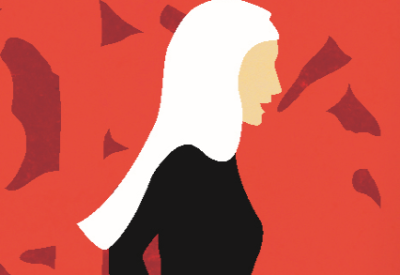
The author
Paul Thurin was born in 1968. He lives and works in Paris, where he reads prolifically.
Download the material
Find out more
Click hereSaturn Returns
Daphné Tamage
Novel - August 2024 - 234 pages
What will save a woman in her thirties from an existential crisis—prayer or white magic?
Apolline has just turned thirty and is at her wits’ end. The last in a long line of heartbreaks has pushed her over the edge into a deep malaise just when her editor has commissioned her to write an essay for young people about demoralisation. She consults her doctor in the hopes that he will help her out of this bad patch, but he prescribes her a remedy that is surprising to say the least: one month without men.
Sceptical but resigned, she leaves the Belgium of her childhood to set up home in her aunt’s empty and run-down house in Conques, a picture-postcard village on the route of the Camino de Santiago. But between the presence of Brother Charles, an attractive monk from the abbey who tries to convince her of the virtues of prayer, and pressure from her editor, Apolline is all over the place.
Lacking a suitable medical cure, she turns to a book of white magic found in the attic and decides to revisit all of her relationships with men. From perfect Ulysses to Olivier the married man, from Sébastien the saxophonist to the ghost of Henry Miller, she follows the threads of her love affairs—the good, the bad, and the ugly—to finally free herself from the past.


The author
Daphné Tamage was born in Brussels in 1992. Her debut novel, À la recherche d’Alfred Hayes, was published by Maurice Nadeau in 2022.
Download the material
Find out more
Click hereMalville
Emmanuel Ruben
Novel - August 2024 - 272 pages
Option in Serbia (Akademska Knjiga).
A childhood spent near a nuclear power station.
In 2036, Samuel Vidouble is confined to his basement following a nuclear accident at the Malville power plant near where he lived as a child in the 1980s. Fascinating and monstruous, the plant is the hub around which all of the family disputes and political struggles of the time circulated. On the banks of the Rhône, the young Samuel grows up in the company of the wild Thomas, and Astrid, a rebellious teenager, while the twin threats of the far right and nuclear fire loom large.
Never again will he be able to return to his childhood land, now ravaged and hostile. All he has left are memories, the only escape from a life he feared during his entire youth, and that is now a daily reality for all.
A coming-of-age and futuristic novel, Malville explores the nuclearized, provincial France of yesterday and tomorrow, highlighting the disastrous health and environmental consequences of our energy “choices”, which are irrevocably changing our relationship to the world, the earth and living things.

The author
Born in Lyon in 1980, Emmanuel Ruben has written some ten books – novels, narrative non-fiction, and essays – including Sur la route du Danube (Prix Nicolas Bouvier 2019) and, published by Stock, Sabre (Prix des Deux-Magots 2021) and Les Méditerranéennes (2021).
Download the material
Find out more
Click hereNew Fiction
Hexa
Gabrielle Filteau-Chiba
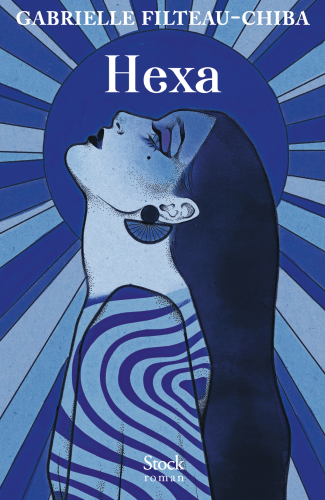
Novel - January 2025 - 368 pages
Activism and sorority in the service of nature as she reclaims her rights.
16-year-old Thalie lives with her parents, Gabriel and Sandrine, in Quebec. No-one is allowed to cross the Wall that surrounds her town and protects its residents from the devastation and the chaos raging beyond. Trees have been replaced by CO2 sensors and drones track all comings and goings. A sacrifice for the greater good, if the authorities are to be believed.
Every spring, until the return of the snows, Sandrine abandons her partner and her daughter to go and reforest the north of the country with a group of women. This year, Thalie earns the right to go with her. Far from all civilisation, in the company of these generous and determined tree-planters, the teenager discovers an unexpected world, where nature is omnipresent, where sorority reigns supreme, and where everything still seems possible. Far away from the two women in his life, Gabriel risks everything to develop a plan to enable the three of them to be reunited, finally free.
Meanwhile, Hexa, a guiding light and the common thread of the novel, crosses ancient forests with her hands on her womb, protecting at all costs the life growing inside her…

The author
In the winter of 2013, Gabrielle Filteau-Chiba, left her job, home and family in Montreal, sold all her worldly belongings and moved into a wooden cabin in Quebec’s remote Kamouraska region. There, she spent three years living deep in the forest, without running water, electricity or phone signal, and with only prowling coyotes for company outside. She has written the Kamouraska trilogy – Encabanée, Sauvagines, Bivouac – and Hexa.
Download the material
Find out more
Click hereNo Respect
Emmanuelle Lambert
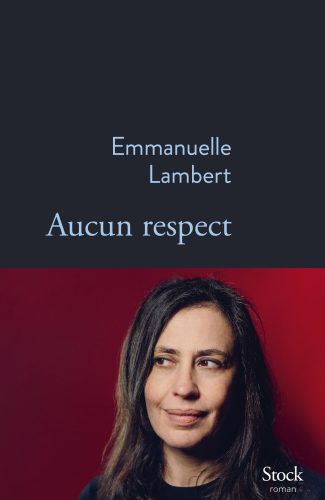
Shortlisted for the Prix Médicis
Novel - August 2024 - 234 pages
Option in Brazil (Autentica).
Free-spirited and brazen, the narrator proves that young women should never be underestimated.
It is the late 1990s and a naïve and idealistic woman in her twenties arrives in Paris. We follow her as she discovers a new social life, friendships, love, as she enters the world of work and finds herself frequenting an elite intellectual milieu and its colourful characters. Among them there is the writer Alain Robbe-Grillet, known as the “Pope of the Nouveau Roman”, and Catherine, his discreet wife and star hostess of sadomasochistic rituals; they embody an era as well as a certain idea of literature, of sexual freedom and feelings. The heroine will come face to face with all of these things, sometimes with shock and sometimes with delight.
This feminine voyage of discovery ends up being an obstacle course that with every hurdle becomes irresistibly funnier. The clash of social backgrounds, of bodies and of genders is intensified by the gap between past and present, a distance that leaves space for humour.

The author
Emmanuelle Lambert is the author of several titles including La Désertion (Stock, 2018), the literary essay Giono, furioso (Stock, 2019), which won the 2019 Prix Femina for an essay, and Le garçon de mon père (Stock, 2021).
Download the material
Find out more
Click hereAdmiration
Florent Marchet
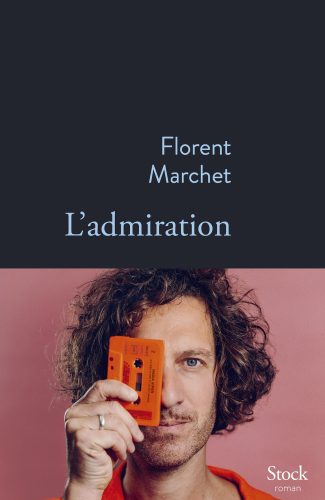
Novel - August 2024 - 272 pages
The parallel destinies of a young boy trying to make a name for himself in show business and an artist on the way out.
Meet the admirer and the admired: Bastien, 13 years old, knows by heart the hit show of his favourite stand-up comedian, Nadia Viper; Nadia Viper for her part dreams of performing at the Olympia and will stop at nothing to keep her name in the lights.
During a show in Bastien’s hometown, Nadia Viper is touched by the dreamy look in his eyes when she tells him about cabarets and rubbing shoulders with big stars. She feels a touch of pride at his admiration, and recognising he has talent, decides to take him under her wing.
But once Bastien is settled in Paris and enjoying his own success, will he be able to stay close to Nadia Viper when she is no longer at her peak? This is the story of a boy lost in his ambitions and a woman chasing success. They will help each other, use each other, and wear each other down until the curtain finally falls.

The author
Florent Marchet was born in Bourges in the Berry region of France in 1975. His debut novel Le Monde du vivant was published in 2020 by Stock.
Download the material
Find out more
Click herePrescriptions
Jean-Marc Parisis
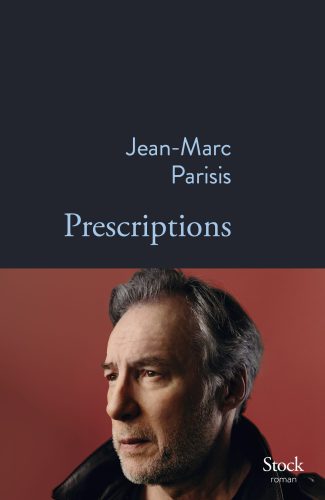
Novel - August 2024 - 234 pages
A man refusing to give in to fate embarks on a masterful existential quest.
Pierre Vernier, the director of the photo department for a newspaper, is leaving his office when he is suddenly struck by a migraine and collapses. After consulting a neurologist, he is diagnosed with a rare syndrome and given only a few months to live. That same day, he receives strange messages from two women from his past.
Haunted by the idea of his approaching death and by equally unspeakable memories, Vernier throws himself into a double life, unbeknownst to his partner. Ordinarily a quiet man, reader of Marcel Proust and Dashiell Hammett, he revisits his past and tries to understand what is happening to him. He returns to places as if he were returning to the scene of a crime, grasps at bygone days and bygone loves, rediscovers bodies and faces that betray his memory, and tries to save himself so he can keep those memories alive.

The author
Jean-Marc Parisis is the author of a dozen books, including Le Lycée des artistes (1992, Grasset), Les Inoubliables (2014, Flammarion), Un problème avec la beauté. Delon dans les yeux (2018, Fayard) and, published by Stock, Avant, pendant, après (2007, Prix Roger-Nimier) and Les aimants (2009).
Download the material
Find out more
Click hereMODERN CLASSICS
Bruises to the Soul
Françoise Sagan
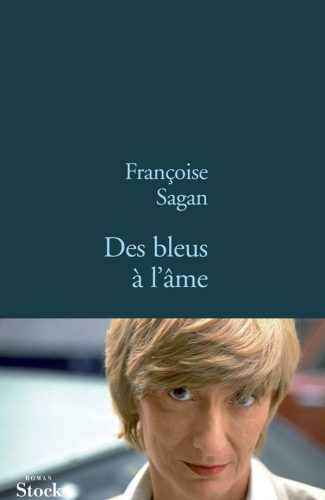
Novel - October 2009/reissue - 192 pages
Rights sold to China (Shanghai 99), Korea (Sodam & Taeil), Russia (Azbooka-Atticus).
Throughout these pages, Sagan delicately blurs the line between author and characters, between solemnity and lightness.
Sébastien and Eléonore, brother and sister, bosom buddies, settle in a furnished apartment in Paris, both of them perfectly penniless and perfectly available. Almost immediately they have people thronging round them: Nora, an American as wealthy as she is ripe in years, Bruno, a young French film star, Robert, a famous impresario…
For once Sagan’s incidental music takes on a cold, clashing personal note. She takes sides with her characters and gives us her opinion of their lives and her own. She tells us how she feels about people who criticise her books, tells us what she herself thinks of her “incidental music”, and puts herself in the picture as she rarely does elsewhere. She uses the first person to justify her choices but, in a final flourish, gives it back its novelistic status.

The author
Françoise Sagan achieved fame at the age of nineteen with Bonjour tristesse. It was followed by plays and many novels, all of which enjoyed success in France and around the world. She wrote her own epitaph in Le Dictionnaire des auteurs: “First appeared in 1954 with a slender novel, Bonjour tristesse, which created a scandal around the world. Her death, after an enjoyable but botched life and life’s work, was a scandal only for herself.”
Download the material
Find out more
Click here"MY NIGHT IN THE MUSEUM" SERIES
Rue Du Premier-Film
Thierry Frémaux
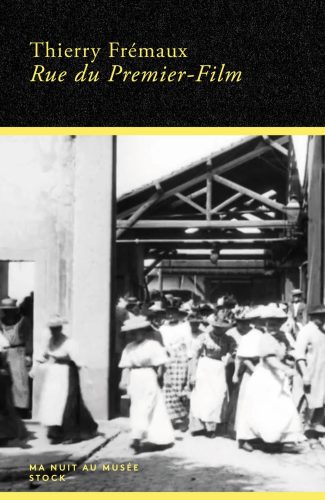
Narrative Non-Fiction/Art - September 2024 - 252 pages
Villa Lumière, Lyon
Option in Brazil (Editura Fosforo) and Japan (Kanzen).
Thierry Frémaux, a leader of global cinema, spends a night in the birthplace of the seventh art.
Since that day in June 1982 when Thierry Frémaux first discovered the Villa Lumière in the Monplaisir district of Lyon, he has practically never left. Spending a night in the exact place where Auguste and Louis Lumière launched the modern cinematograph, where the first film in history was shot, where Bernard Chardère inaugurated the Institut Lumière, where Bertrand Tavernier then cemented its international status… the choice was obvious. It was a way for Thierry Frémaux to come full circle and express both his gratitude and his passion for this special art form that shows and imagines the world at the same time.
The history of the origins of cinema goes hand in hand with the history of the Institut Lumière, a place visited as a rite of passage by several hundred personalities from French and world cinema. Frémaux pays tribute to his predecessors, those who are still a source of inspiration, as well as the innovators of today.

The author
Thierry Frémaux is the director or the Institut Lumière and the Cannes Film Festival. He is the author of Sélection officielle (Grasset, 2017), Si nous avions su que nous l’aimions tant, nous l’aurions aimé davantage (Grasset, 2022), and Judoka, published by Stock in 2021.
Download the material
Find out more
Click hereAs Night Turns To Night
Ananda Devi
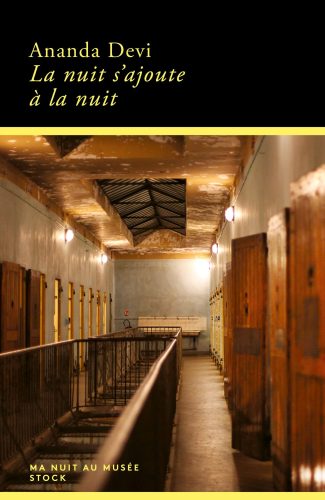
Shortlisted for the Prix Renaudot Essay
Narrative Non-Fiction/Art - August 2024 - 304 pages
Montluc Prison, Lyon
Option in Brazil (IMA Editorial) and USA (FSG).
Ananda Devi reflects on the perils of inhumanity, violence, ignorance, and above all complicity. A history that continues to repeat itself.
The author spends a night in the the Montluc Prison Memorial and finds herself consumed by the heavy history of this Lyon Prison. It was requisitioned during the Second World War to detain members of the Resistance, Jews, and spies. After the Armistice, French and German collaborators and war criminals were in turn imprisoned there. During the Algerian War, many condemned Algerians awaiting their sentence were held within its walls. Klaus Barbie, head of the Gestapo in the region and known as the “Butcher of Lyon”, was symbolically incarcerated there before his trial in 1983.
All the complexity of history seems to converge at a single point, but its tentacles spread much further. The author tries to follow them, to untangle them, to grasp at them. To become part of this history during one sleepless night and meet the spirits of so many Resistance fighters, only to realise that the only ghost haunting this place is her.

The author
Born in Mauritius, Ananda Devi boasts a body of work that has won numerous prizes and been translated into a dozen languages. Her most notable publications include Eve de ses décombres (2006, Prix des Cinq Continents, Prix RFO), Le Sari vert (2009, Prix Louis Guilloux), and Le Rire des déesses (2021, Prix Femina des Lycéens). She is also the 2024 recipient of the prestigious Neustadt Prize.
Download the material
Find out more
Click herePourquoi collectons-nous vos données ?
Les informations que nous collectons nous permettront de vous proposer des contenus personnalisés et adaptés en fonction de votre profil.
Tout savoir sur les données personnelles


